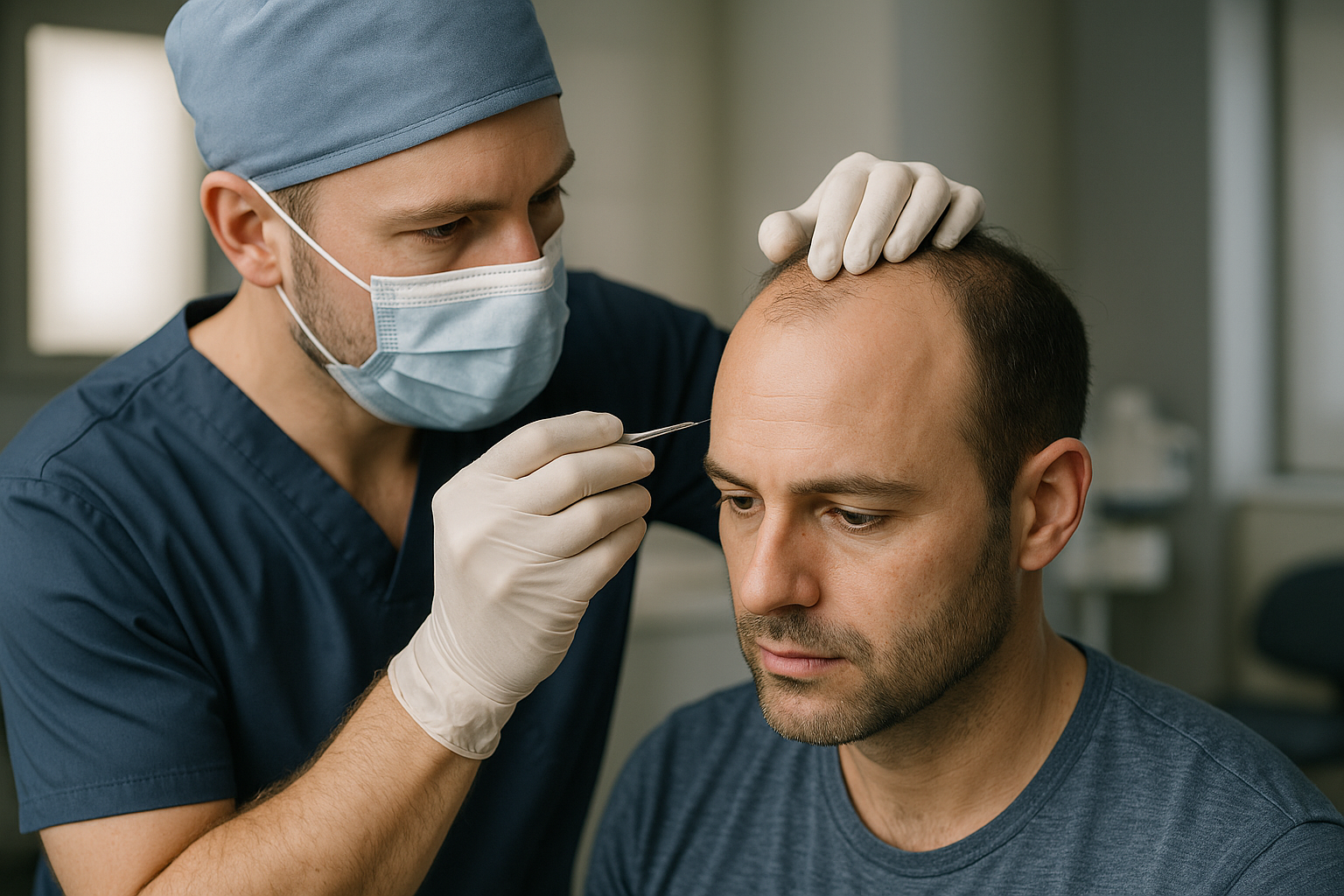What to Know Before Getting a Tummy Tuck Surgery
A tummy tuck, also known as abdominoplasty, is a cosmetic surgical procedure designed to remove excess skin and fat from the abdomen while tightening the underlying muscles. Before deciding to undergo this procedure, it’s important to understand what it involves, who may be a good candidate, and what to expect before and after surgery.

A tummy tuck, medically known as abdominoplasty, is a major surgical procedure designed to remove excess fat and skin from the abdomen while restoring weakened or separated abdominal muscles. The result is a smoother, firmer abdominal profile that many patients find dramatically improves their body contour and confidence. However, like any surgical procedure, tummy tucks require careful consideration of various factors including candidacy requirements, recovery expectations, and financial planning. This comprehensive guide will help you understand what to expect when considering this transformative procedure.
Understanding the Benefits of Tummy Tuck Surgery
Tummy tuck surgery offers several potential benefits beyond simple cosmetic enhancement. For many patients, the procedure addresses issues that diet and exercise alone cannot resolve. After significant weight loss or pregnancy, excess skin often remains and abdominal muscles may have separated (a condition called diastasis recti). A tummy tuck can effectively correct these issues.
The physical benefits include a flatter, more toned abdominal area and potentially improved posture due to tightened muscles supporting the spine. Many patients also report reduced back pain and improved core strength following surgery. Additionally, the procedure can remove stretch marks and scars located on the excised skin, though it cannot eliminate all stretch marks.
Beyond physical changes, many patients experience psychological benefits including improved self-esteem and body image. Clothing tends to fit better, and patients often feel more comfortable engaging in physical activities they previously avoided.
What Does Tummy Tuck Surgery Cost?
The financial aspect of tummy tuck surgery represents a significant consideration for most patients. Pricing for this procedure varies widely based on several factors including geographic location, surgeon experience, facility fees, anesthesia costs, and the complexity of your specific case.
On average, tummy tuck surgery in the United States typically costs between $6,000 and $12,000. However, more complex procedures like extended tummy tucks or those combined with liposuction may cost $15,000 or more. It’s important to note that these figures generally represent the surgeon’s fee alone and may not include anesthesia, operating room facilities, or other related expenses.
Most health insurance plans do not cover abdominoplasty when performed for cosmetic reasons. However, in some cases where the procedure addresses medical issues such as certain types of hernias or functional problems, partial coverage may be possible.
| Cost Component | Price Range | Notes |
|---|---|---|
| Surgeon’s Fee | $4,000-$8,000 | Varies by experience and location |
| Anesthesia | $1,000-$1,500 | Depends on procedure length |
| Facility Fees | $1,000-$3,000 | Hospital or surgical center |
| Pre/Post-Op Care | $500-$1,500 | Includes medications and follow-ups |
| Total Estimated Cost | $6,500-$14,000 | Comprehensive procedure cost |
Prices, rates, or cost estimates mentioned in this article are based on the latest available information but may change over time. Independent research is advised before making financial decisions.
Finding Tummy Tuck Services Available in Your Area
Locating qualified plastic surgeons who perform tummy tuck procedures in your region requires thorough research. Start by searching for board-certified plastic surgeons through professional organizations like the American Society of Plastic Surgeons (ASPS) or the American Board of Plastic Surgery. These organizations maintain directories of certified surgeons searchable by location and specialty.
Local medical centers and hospitals with plastic surgery departments can also provide referrals to qualified surgeons. Many larger cities have specialized cosmetic surgery centers that focus exclusively on procedures like tummy tucks.
When researching local providers, consider scheduling consultations with multiple surgeons to compare their approaches, experience levels, and communication styles. During these consultations, ask to see before-and-after photos of previous patients with similar body types to yours. This visual evidence can help you gauge the surgeon’s skill and aesthetic sensibility.
Most reputable surgeons offer virtual consultations for initial screenings, making it easier to evaluate several options before committing to in-person visits. Many also provide financing options or payment plans to help manage the cost of surgery.
What to Expect During Recovery
The recovery process after a tummy tuck is significant and requires advance planning. Most patients need two to four weeks away from work and normal activities. The first week typically involves the most discomfort, managed with prescribed pain medication. You’ll likely have surgical drains in place for 1-2 weeks to prevent fluid buildup.
During the initial recovery period, you’ll need to walk slightly bent at the waist to avoid straining your incision. A compression garment must be worn for several weeks to reduce swelling and support healing tissues. Strenuous activities, heavy lifting, and exercise should be avoided for at least six weeks.
Complete recovery can take 3-6 months, with final results becoming visible as swelling fully subsides. The scar, while permanent, will fade significantly over time and is typically placed low enough to be concealed by underwear or swimwear.
Who Makes an Ideal Candidate?
Not everyone is an appropriate candidate for tummy tuck surgery. Ideal candidates are individuals in good general health who are at or near their target weight but struggle with excess abdominal skin and fat resistant to diet and exercise. The procedure works best for those who maintain a stable weight, as significant weight fluctuations can compromise results.
Women who have completed their families make better candidates, as future pregnancies can reverse the benefits of surgery. Smokers must quit several weeks before and after surgery, as smoking significantly impairs healing and increases complication risks.
Patients should have realistic expectations about outcomes and understand that while a tummy tuck can dramatically improve abdominal contour, it is not a weight loss procedure. Those with significant obesity may need to lose weight before becoming eligible candidates.
Medical conditions like heart disease, diabetes, or autoimmune disorders may increase surgical risks, requiring careful evaluation by your surgeon and primary care physician before proceeding.
This article is for informational purposes only and should not be considered medical advice. Please consult a qualified healthcare professional for personalized guidance and treatment.




